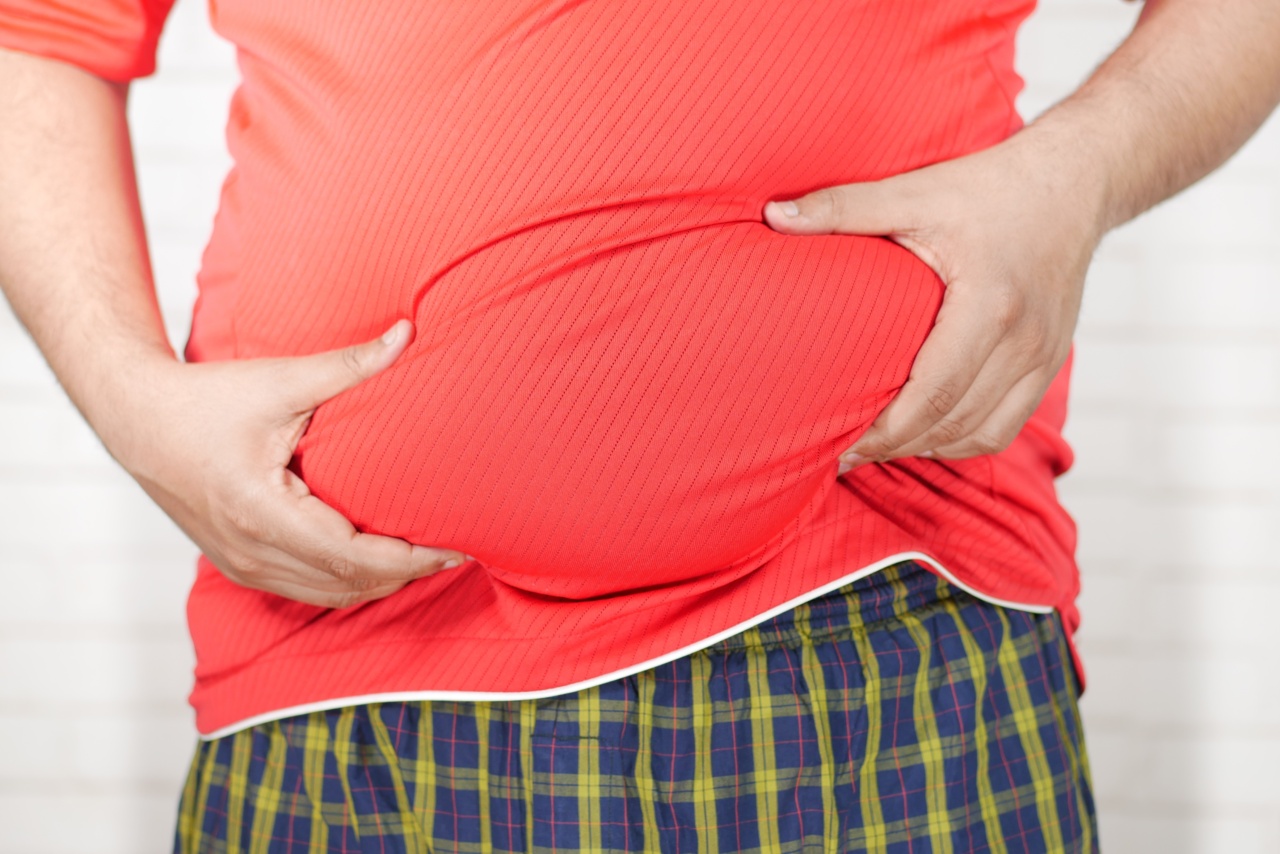A bloated belly is a common problem that can make you feel uncomfortable and self-conscious. It occurs when your stomach feels full and swollen, often accompanied by gas and discomfort.
Many factors can contribute to a bloated belly, such as overeating, eating too quickly, consuming fizzy drinks, and stress. The good news is that there are ways to eliminate a bloated belly and feel better. In this article, we’ll share some tips to help you banish bloating and improve your digestion.
1. Chew Your Food Slowly
Eating too quickly is one of the most common causes of bloating. When you eat quickly, you tend to swallow a lot of air, which can lead to gas and bloating. To avoid this, try to slow down your eating pace and chew your food slowly.
This will help you break down your food more effectively, reducing the risk of undigested food reaching your colon, where it can ferment and cause gas. Plus, chewing your food properly will promote better absorption of nutrients, which is essential for overall health.
2. Drink Plenty of Water
Dehydration can also lead to bloating. When you’re dehydrated, your body tends to retain water, which can cause your belly to feel swollen.
To avoid this, make sure you drink plenty of water throughout the day, especially after exercising or spending time in the sun. Staying hydrated will help flush out toxins from your body and improve your digestion, reducing the risk of constipation and bloating.
3. Avoid Carbonated Drinks
Carbonated drinks like soda and beer can cause bloating. These drinks contain carbon dioxide, which can build up in your stomach and intestines, leading to bloating.
If you want to avoid bloating, try to limit your intake of carbonated drinks or eliminate them from your diet altogether.
4. Eat More Fiber
Fiber is an essential nutrient that helps promote healthy digestion. It adds bulk to your stool, making it easier to pass through your intestines. This can help reduce the risk of constipation, which can lead to bloating.
Good sources of fiber include fruits, vegetables, whole grains, and legumes. Try to include fiber-rich foods in your diet daily to improve your digestion and reduce bloating.
5. Cut Back on Salt
Eating too much salt can also lead to bloating. Sodium can cause your body to retain water, leading to a swollen belly. To avoid this, try to cut back on your salt intake and choose low-sodium foods whenever possible.
This will help reduce water retention in your body and prevent bloating.
6. Avoid Chewing Gum
Chewing gum can also contribute to bloating. When you chew gum, you tend to swallow more air, which can cause gas and bloating.
Additionally, many chewing gums contain artificial sweeteners, which can be difficult for your body to digest, leading to bloating. To avoid this, try to limit your intake of chewing gum or eliminate it from your diet altogether.
7. Exercise Regularly
Exercise is an excellent way to improve your digestion and reduce bloating. Physical activity helps stimulate the muscles in your intestines, allowing food to move through more efficiently. This can reduce the risk of constipation and bloating.
Additionally, exercise can help reduce stress, which is another common cause of bloating. Try to incorporate at least 30 minutes of moderate exercise into your daily routine to improve your digestion and prevent bloating.
8. Manage Your Stress
Stress can also contribute to bloating. When you’re stressed, your body releases a hormone called cortisol, which can affect your digestion and lead to bloating.
To manage your stress, try to incorporate relaxation techniques into your daily routine, such as yoga, meditation, or deep breathing exercises. Additionally, getting enough sleep and avoiding stressful situations can also help reduce stress and prevent bloating.
9. Try Probiotics
Probiotics are beneficial bacteria that can help improve your digestion and reduce bloating. They work by restoring the natural balance of bacteria in your gut, promoting better digestion and absorption of nutrients.
Probiotic-rich foods include yogurt, kefir, kimchi, and sauerkraut. Additionally, you can also take probiotic supplements to improve your gut health and reduce bloating.
10. Seek Medical Advice
If your bloating persists despite making changes to your diet and lifestyle, it’s essential to seek medical advice.
Chronic bloating can be a sign of a more serious condition, such as irritable bowel syndrome (IBS) or inflammatory bowel disease (IBD). Your doctor can help identify the underlying cause of your bloating and provide appropriate treatment.
Conclusion
Bloating can be an uncomfortable and unsightly problem, but there are ways to eliminate it. By following these tips and making changes to your diet and lifestyle, you can improve your digestion, reduce bloating, and feel better.
Remember to chew your food slowly, drink plenty of water, avoid carbonated drinks, eat more fiber, cut back on salt, avoid chewing gum, exercise regularly, manage your stress, try probiotics, and seek medical advice if necessary. With these strategies, you can say goodbye to a bloated belly and hello to better health and wellness.




























